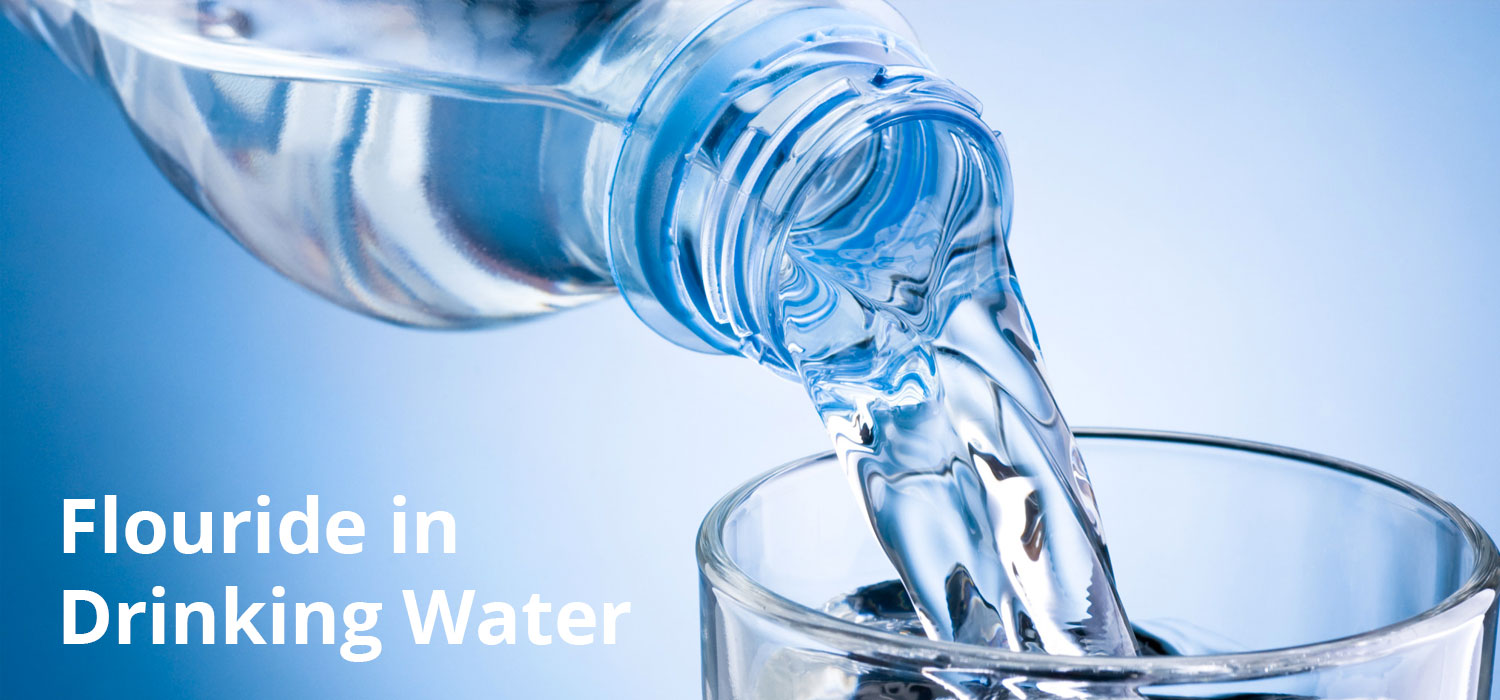
Everyone knows that fluoride is synonymous with teeth and dental health. Your toothpaste has plenty of it, your mouthwash may contain it, and even your drinking water has some in it. But if fluoride is so prevalent in our lives, why is there controversy surrounding it? Why is there cause for concern at all when fluoride is mentioned?
Fluoride is a naturally occurring mineral found in soil, water (both fresh and salt), and certain foods. The reason it is so important is simply because it makes teeth more resistant to tooth decay and in some cases, may even reverse it. It does this through two processes: demineralization and remineralization. After you eat, your saliva contains acids that cause calcium and phosphorous under the tooth’s surface to dissolve (demineralization). During other periods of the day when not eating, your saliva becomes less acidic and the opposite effect is achieved where the calcium and phosphorous is replenished. When fluoride is present in your mouth during remineralization, the good minerals replenished are harder than before, helping your teeth become naturally stronger.
Although using fluoridated toothpaste and mouthwash is great news for our mouths, the contentious issue here is the inclusion of fluoride in the public water supply, something that was introduced into Canadian communities over 60 years ago. After its successful integration into the water supplies in the Unites States, researchers found that people who grew up drinking naturally fluoridated water had up to two-thirds fewer cavities than people living without drinking it. Further studies since have shown that when fluoride was introduced into a community’s water supply, tooth decay decreased. In Canada, the Federal-Provincial-Territorial Committee on Drinking Water makes recommendations about the optimal level of fluoride in public drinking water to prevent tooth decay. So far, they have been successful at lowering the rates of tooth decay among children in Canadian communities.
However, provinces like British Columbia and Newfoundland and Labrador currently have the lowest percentages of people with access to fluoridated water (3.7% for BC and 1.5% for NFL).
In BC, the British Columbia Ministry of Health Services has been supporting the use of fluoride in water to battle caries since 2009. Yet, only seven communities in the entire province have water fluoridation in place.
Despite its benefits, too much fluoride can be dangerous, whether it is ingested via drinking water or via products that contain fluoride. With public drinking water, depending on the use of products at home, there is a chance of dental fluorosis appearing. Dental fluorosis is a change in the appearance of teeth caused by higher than normal amounts of fluoride being ingested during childhood. It is characterized by small white specks appearing on a child’s teeth. That being said, with the exception of this visible anomaly, there are no credible risks associated with water fluoridation.
On the other hand, since children are most at risk for developing dental fluorosis, they must be careful around products like toothpaste that contain high levels of fluoride. Young ones tend to swallow toothpaste during brushing, which will increase exposure to fluoride and contribute to dental fluorosis. Because of this, young children should be supervised by an adult at all times during tooth brushing. The adult can make sure the child has brushed correctly and has spit out the toothpaste instead of swallowing. Of course, from birth to the age of 6, only a pea-sized portion of toothpaste should be used to brush. This minimizes any risk while still being enough to get the job done. However, if your child is not considered at risk of developing fluorosis, consider brushing their teeth with a toothbrush moistened only with water in their younger years.
There has been a push in recent years for the use of fluoride-free products because of the worries of developing fluorosis. Our sole duty is to ensure that your teeth and gums are as solid, functioning, and clean as possible. If you know for a fact that your local water supply is fluoridated and your dentist has informed you that you are getting enough fluoride through other means, you may definitely opt for a fluoride-free or charcoal-based product for teeth cleaning. The amount of fluoride someone needs (and is considered “enough”) can vary based on age or whether you have an allergy to fluoride or not. Talk to one of our dentist about how your unique teeth react to different levels of fluoride, as they can assess anyone’s risk of developing tooth decay and advise you of an appropriate level of fluoride protection.
Fluoride is an integral part of maintaining healthy gums and teeth and having access to it has been considered as a “basic human right to life” by the World Health Organization (WHO). Although taking in too much fluoride can be relatively harmful, the chances of absorbing enough of it to cause dental fluorosis is actually very low. On the other hand, avoiding it altogether in lieu of completely fluoride-free products is also not recommended. If you have any concerns about fluoridated products for you or your child, be sure to voice them during your next visit to our dental office located in Vancouver on Hastings Street.
For more information on Floride, please see our FAQ section regarding flouride here.

